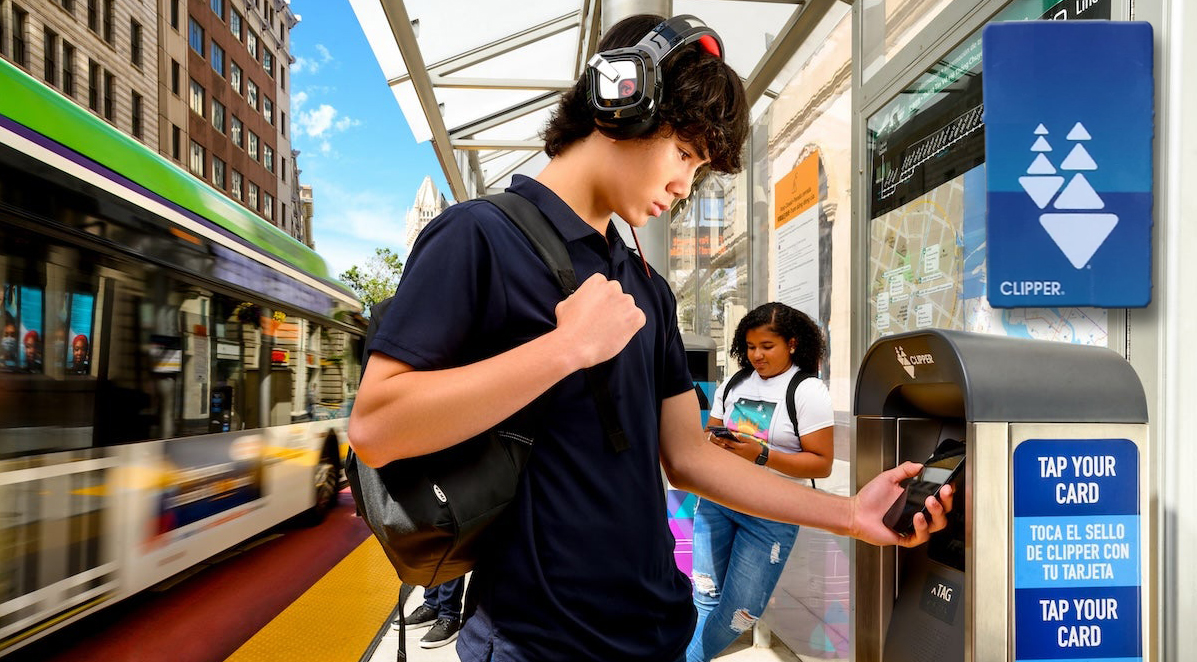Public transit may be in crisis nationwide — funding challenges, wavering political support, cuts in routes, you name it — but one constituency is doubling-down on its support. And even, in one recent case, taxing itself to bolster service.
Students, whose incomes range from low to non-existent, are increasingly fighting for good transit as the key to making their lives affordable.
Beginning this fall, for example, all UC Berkeley students will pay $229 annually to receive the BayPass, which provides unlimited access to 24 transit agencies in the San Francisco Bay Area. The fee may sound high, but it improves on an earlier pilot that only offered service from one of the region's 27 agencies. And in the end, it's a lifesaver in a region with exceptionally high living costs.
“Students [will] save a median of $58 per month” for all their transit needs, said Ren Fitzgerald, the campaign manager for the campus-wide BayPass referendum, citing the fact that students will use the all-you-can-ride pass frequently because they typically live further from campus, where housing is cheaper, or need to go off-campus for internships or part-time jobs.
Best of all for regional transit, the student money will inject much-needed funding into local systems, while the transit systems gain young riders during their four years on campus — and, most likely, beyond.
“It is a mutually beneficial product,” Fitzgerald said. "It can build a lifelong ridership that agencies can count on for the next few decades.”
Putting the card in students’ hands reinforces a culture in which “transit is a viable option, one that cares about them, and one that invests in them,” they added.
UC Berkeley students are not alone as college students elsewhere also recognize the value of public transit. In Southern California, UC San Diego students reauthorized the Triton U-Pass program by a landslide in January, also hiking their own fees slightly to expand its benefits including access during the summer. Last year, Tufts University began piloting a free MBTA pass, providing transit across the Boston region, for students enrolled at its fine arts school. George Washington University trialed subsidized WMATA transit passes for students in 2021, and has continued that partnership.
Discounted or free transit for students is not a new phenomenon, nor is it limited to those at the college level. The University of Washington has had its program since 1991, making it among the oldest examples, while also expanding its benefits in the past few years. New York City youth get 4 transit rides per day which was expanded last year from the school-centric benefit of just 2 rides per day and only on weekdays. And San Francisco is even more generous with free transit passes for youth, which became universal in 2021.
Those K-12 students end up developing transit habits that will continue into adulthood, as a report issued last year by International Transport Forum shows.
"Young people’s travel behavior and aspirations could influence how
sustainable transport will become in the long run," the paper said, arguing that it's crucial for transit agencies to "give youth a voice."
"Young people’s views rarely figure in transport policy decisions," the report continued. "Traditional transport planning does not always consider their needs. Involving young people in transport planning and decision-making could better align solutions with the challenges."






